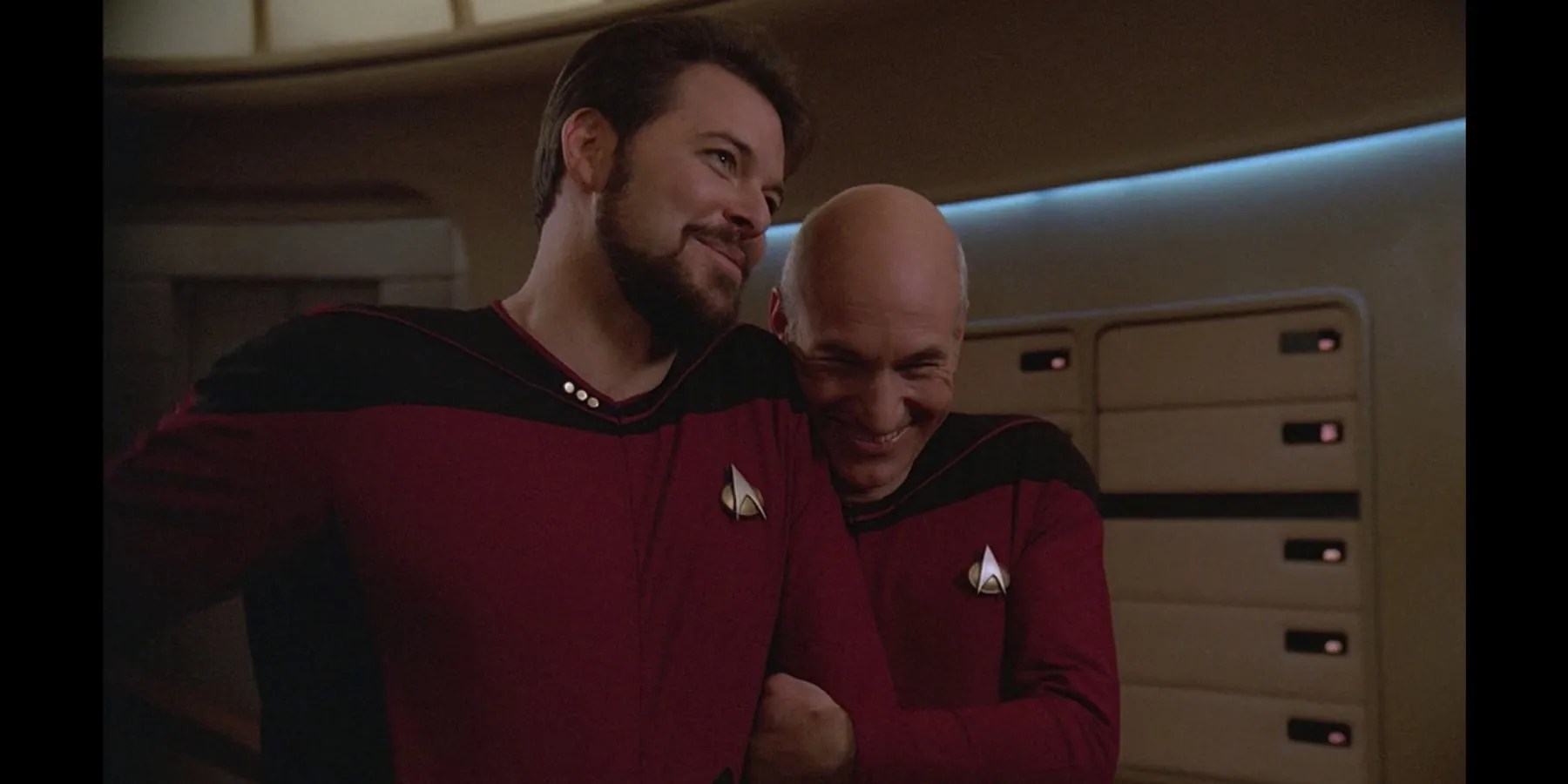Of all the many iterations into theStar Trekfranchise,The Next Generationis heralded as one of the best. It encapsulates everything the original space-faring sci-fi program stood for. Alongside the amazing,influential technology, there was drama, comedy, and some of the mostemotionally heartbreaking episodes inStar Trekhistory. But at its core, what made the show so good was its incredible team of actors who brought the characters to life. While Patrick Stewart’s Picard has gone down in history, things were not always plain sailing for the famed actor. In fact, his role in the show got off to a rather turbulent start.
When Stewart started working for Roddenberry and theStar Trekteam, he felt like a complete outsider. Prior to the role, he was known as a fairly serious Shakespearean actor. While he dabbled in a few sci-fi projects over the years (most notably the 1984Dunefilm) he was warned by his theater buddies that he should avoid the genre at all costs. He was told that he might jeopardize his entire career if he became the face of a less-esteemed genre such as sci-fi. Even Stewart’s agent warned him against taking the role, less through fear of the genre, more so because he feltTNGwould flop and only last a year or so. Despite this, however, Stewart persisted and landed the role of Captain Jean Luc Picard, and signed up for an initial six-year contract. Yet, he went into the role incredibly nervous. He was not warmly welcomed into the American scene, with newspapers describing him as an “unknown British Shakespearean actor” andRoddenberry himself calling him a white, middle-aged bald man.

RELATED:Patrick Stewart Tells The Story Behind Why Whoopi Goldberg Decided To Join Star Trek
Stewart joining the crew full of these doubts made for some rocky first interactions with his fellow crew members. He was, at the time, living out of a suitcase as he was so certain the show would be canceled. After around 6 months, he came to settle in. Before this, however, there was some notable friction between him and the other actors. Stewart, being the classically trained actor he was, was very serious about the whole acting business. He approached each moment incredibly professionally, something his fellow cast members did not do. Stewart later revealed that he was appalled by how they all conducted themselves on set, as they were not focused or serious. The show’s American actors joked around and played pranks on one another. This all bubbled up into some explosive conflicts on set, notably between him and the actor who playedthe sash-wearing Worf, Michael Dorn.

Things started to change, however, after the first season wrapped, and Stewart was able to see the impact his character and the show was having on the fans. Having never experienced the large American fan base forStar Trek,he was shocked to see how many people supported and loved the show. He finally realized that not only would the show be a success, but his rowdy and unprofessional cast members were not the terrible actors he thought they were. He started to relax, and began to show a new, mischievous side to rival that of the other cast members' jokes, taking part in pranks with Jonathan Frakes and Brent Spiner (the actors behind Riker and Data).
Yet, his humor was not as well received as he might have liked. There has always been a big difference between British and American humor. This resulted in Stewart coming across as somewhat insulting and abrasive, something he was reprimanded for in a rather spectacular fashion. After insulting Marina Sirtis’sacting as Dianna Troi(something she already felt insecure about, feeling she was only there for sex appeal) she properly told him off, getting right up into his face and reading the riot act from memory to him.
While this might seem like a disastrous turn of events for his relationship with the rest of the crew, it was this moment that changed their relationship for the better. Sirtis' outburst brought both them, and the rest of the crew, together, airing out all the dirty laundry that had built up over the last season. The moment was incredibly cathartic, and helped form one of the best, most tightly woven group of cast members in television history. Stewart, Frakes, and Spiner became very close, still being good friends to this day. Over the course of acting together, they learned a lot from one another.Stewart learned to let go a little bit, to take acting less seriouslyand emotionally connect with the role like he had never done before, and Frakes and Spiner learned to take their roles more seriously. So much did Stewart’s attitude change, Frakes even remarked that he was the ‘silliest one on set.’
The relationships that were formed outside the fiction universe ofTNGare what make the show so good, Stewart being vastly different from the Shatner ofTOS.Shatner (and therefore Kirk) made the show all about them, becoming the main focus of each episode and scene. Meanwhile, Picard andTNGpushed his cast members to be center stage, lifting them up in ways the franchise had never seen before. He stood up for them behind the scenes, advocating their needs and wants to producers. He was always there to help and listen to them. Despite his rocky start and his doubts about the show, he ended up being the main reason it was such a success, rocketing the franchise into the limelight and making it possible for allStar Trekshows that came after.